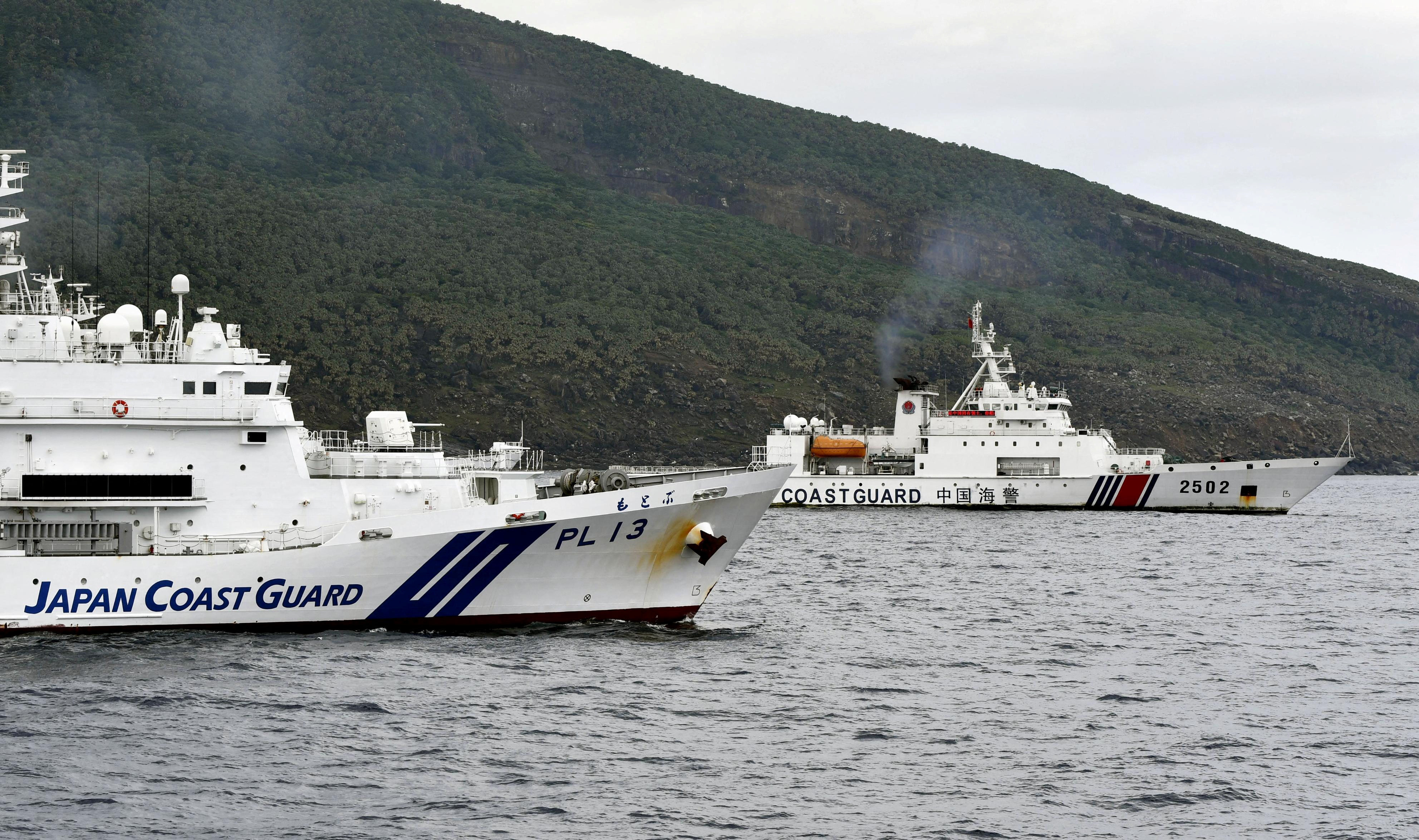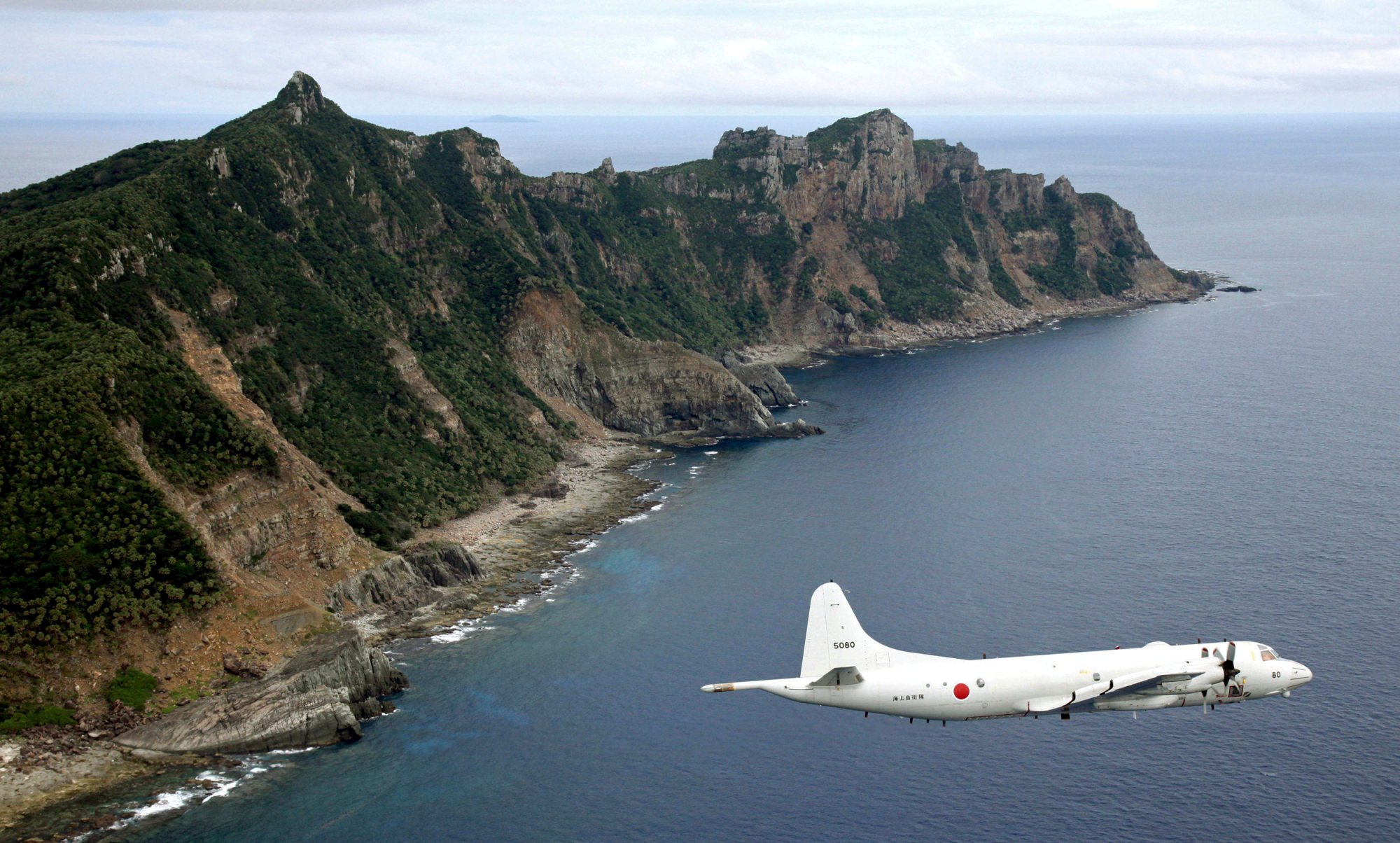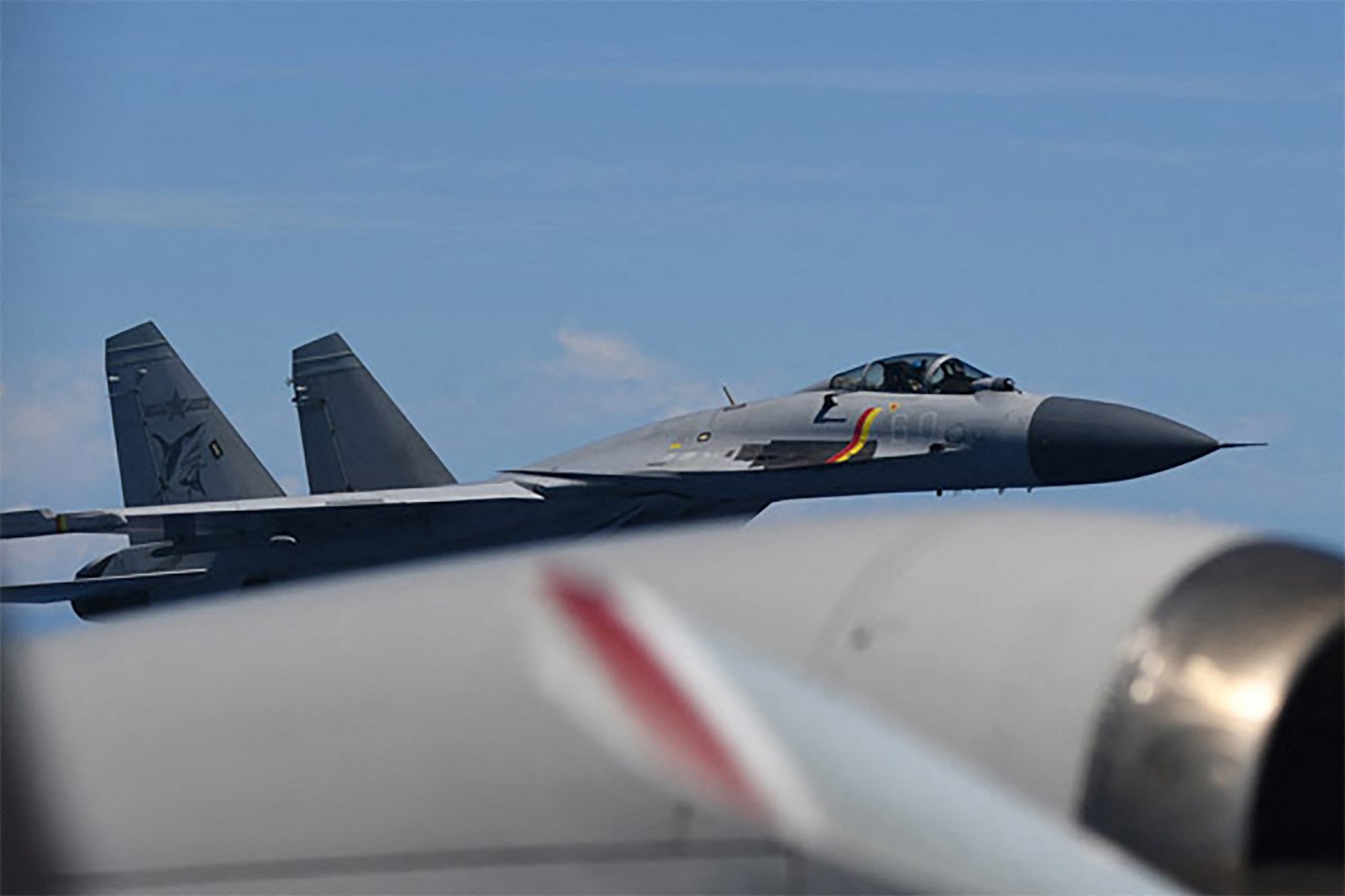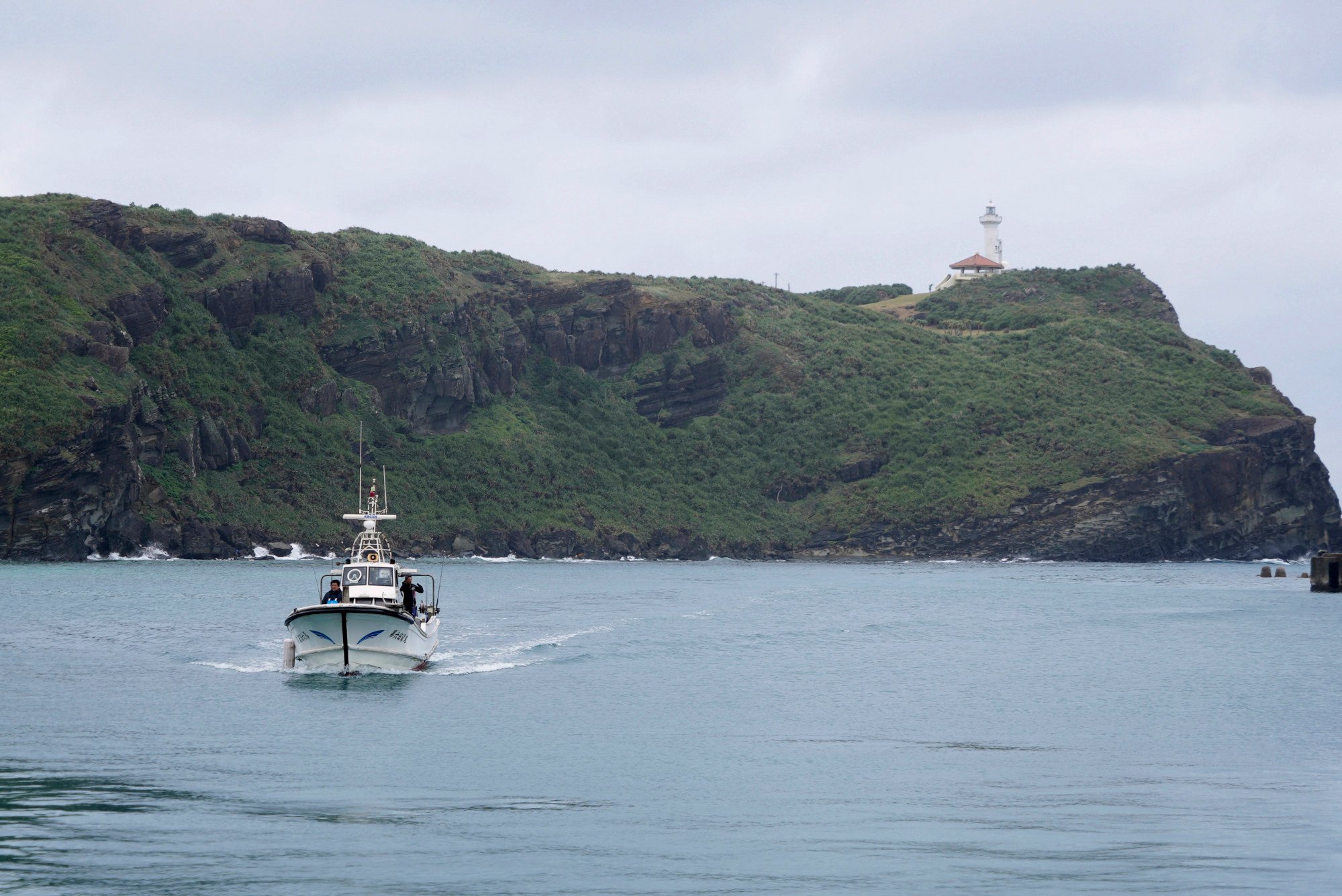Japan’s ex-army chief sees China preparing for East China Sea landing operation
Kiyofumi Iwata points to Beijing’s growing military preparations and incursions in the East China Sea as signs of a potential landing operation

A former Japanese military chief has warned that Beijing’s increasingly assertive moves around disputed islands in the East China Sea could be setting the stage for a Chinese landing operation.
While analysts broadly agree that Beijing is seeking to expand control over the Diaoyu Islands, they differ on how close China might be to launching an outright takeover, with some warning of growing military preparations and others cautioning that a full-scale assault remains premature.
In an interview with the conservative Sankei newspaper published on Monday, Kiyofumi Iwata, who previously served as the Japanese Ground Self-Defence Force’s chief of staff, said “the next logical step would be a landing and absorption” of the islands, which are known as the Senkakus in Japan.
The uninhabited islets, long a flashpoint in Sino-Japanese ties, are controlled by Tokyo but claimed by Beijing.

Iwata pointed to China’s growing maritime presence around the islands over the past two years, including the frequent entry of Chinese coastguard vessels into Japanese territorial waters.
Tensions spiked on May 3, when a Chinese coastguard vessel launched a helicopter after a Japanese civilian aircraft had approached the area. According to Iwata, Beijing sought to portray the move as “an exercise in proclaiming its sovereignty” in response to a Japanese intrusion.
“By portraying the move as reactive, they are attempting to establish a precedent for their territorial claim,” he said.
Two Chinese coastguard vessels entered the area again on June 14, marking the 16th day armed Chinese ships had been tracked inside Japanese waters this year.
The incidents form part of a broader pattern of Chinese activities that have raised alarm in Tokyo. These include the placement of Chinese buoys in Japanese waters for maritime research and the deployment of two Chinese carrier groups near Japanese islands east of Okinawa.
Those tensions culminated earlier this month when a Chinese fighter jet from an aircraft carrier came dangerously close to a Japanese surveillance plane on June 7 and 8 – encounters that Tokyo has denounced as “abnormal approaches”.

According to Iwata, Beijing’s coastguard is “already preparing” for a potential operation to seize the islands.
“They have been steadily upgrading their equipment and capabilities, including ship deployments, helicopter operations and specialised training for personnel tasked with disembarking and carrying out missions on the ground,” he said.
Iwata also noted recent legal changes that might lay the groundwork for a future confrontation. “On the legal front, [Chinese President] Xi Jinping amended regulations in 2024 that authorise the detention of foreign vessels and individuals that enter what China claims as its territorial waters,” he said, adding that Beijing’s coastguard drills increasingly resembled full-scale naval exercises.
Many observers share the belief that China wants to control the islands and that, sooner or later, it will try to wrest control and sovereignty away from Japan.
“I think there is a broad consensus on that,” said Ryo Hinata-Yamaguchi, associate professor at Tokyo International University’s Institute for International Strategy.
“The increase in the Chinese pressure and presence has not really been hidden and these ‘grey-zone’ efforts have been going on for some years, in the same way that China has been exerting pressure elsewhere,” he told This Week in Asia.
However, he argued that an occupation of the islands would have limited strategic value for Beijing on its own.
“What would China gain by just occupying the Senkakus?” he asked. “I do not see that as an end in itself, although it could be part of a larger goal that would include occupying other islands.”

He suggested that other Japanese territories could eventually be at risk, particularly the outlying islands of Okinawa such as Yonaguni, which hosts a Japanese military presence. Beijing might see these as obstacles to any future move on Taiwan, or as key positions for breaking out beyond the so-called first island chain that constrains its navy.
Beijing sees Taiwan as part of China to be reunited by force if necessary. Most countries, including the US, do not recognise Taiwan as an independent state, but Washington is opposed to any attempt to take the self-governed island by force and is committed to supplying it with weapons.
Hinata-Yamaguchi said China’s military still appeared unprepared for such a major operation, as it continued to expand and modernise its air, sea and ground forces.
Should China attempt to seize the Senkakus, he said Japan would respond in concert with Washington under the US-Japan security treaty.
Others, however, voiced greater uncertainty.
“I would not say that an attack on the islands is likely now, but we can see how an argument could be made why China would try to take them,” said Robert Dujarric, co-director of the Institute of Contemporary Asian Studies at Temple University’s Tokyo campus.
“We cannot be sure that this US administration would step in to honour its security promise, as [President Donald] Trump has a reputation for ‘taco’,” he said, referring to an acronym popularised this year that stands for “Trump always chickens out”.
Dujarric cited the geopolitical turmoil elsewhere in the Middle East and Ukraine, as well as the “weak government in Japan” and the extent to which Japanese people would be willing to defend the islands.
Suggestions that Japan should deploy armed forces on the islands would inevitably trigger fierce backlash from Beijing and could serve as a “tripwire” for a military reaction, he added.
The growing unease is reflected in local opinion, particularly in Okinawa prefecture, where the Yaeyama Daily News has published reader comments expressing alarm.
“It is only a matter of time before Chinese people – probably military personnel disguised as fishermen – land on the Senkaku Islands,” read one comment. “If that happens, the islands will effectively be under the control of China.”
Another read, “It has become the norm for Chinese ships to violate our territorial waters. China’s approach is to do more, little by little, and they will eventually take control. They will take everything.”
A third commenter demanded a stronger government response to assert Japan’s sovereignty: “How long is the Japanese government going to leave this matter unattended? They have not taken adequate countermeasures. They should not be afraid to build structures on the islands and reaffirm Japanese control.”